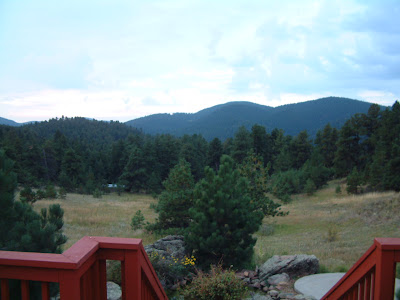One of my peeps has super exciting—super secret news that I can't really share. But I will say this:
SQUEEEEEEEEEEEEEEEEEEEEEEEEEEEEEEEEEEEEEEEEEEEEEEEEE!!!
Okay, that is all.
One of my peeps has super exciting—super secret news that I can't really share. But I will say this:
SQUEEEEEEEEEEEEEEEEEEEEEEEEEEEEEEEEEEEEEEEEEEEEEEEEE!!!
Okay, that is all.










I wanted to post some of my notes from the RMFW conference. You'll have to excuse me if these are a little sparse in certain spots. The only real point that I can criticize Eldon Thompson on as a presenter is that he spoke EXTREMELY fast. I'm a quick note-taker (law school, hello), but even I couldn't keep up at times.
So, you might be wondering – why take a screenwriting class, Jen?
What can I say? I love movies. Love, love, love, LOVE me some movies. You might say I'm slightly obsessed with them, though I haven't seen a new one in ages. And one comment I've heard over the years is that some of my scenes are "very cinematic." I'm not sure that's always a good thing in writing – guess it depends on who you're talking to. That said, I really didn't know much about screenwriting before taking this class. Even now, I'm not sure it's something I could do – well. I definitely want to try, though. Especially after taking this class.
Okay…screenwriting.
Eldon started off by talking about some of the differences between novels and screenwriting.
Eldon finished this section by reminding us of The Golden Rule: Every rule is made to be broken. But, Eldon pointed out, understanding why the rules exist is always a good idea.
So, some tips on writing a screenplay:
How can you get started?
Software options for screenwriting:
Okay…now we're going to get into the nitty-gritty of writing a screenplay. The "set-up" so to speak.
Three things you should always keep in mind: Character, Desire, and Conflict. Repeat after me. Character, Desire, and Conflict. Got it? K.
For this section, he used Michael Hauge's Six Stage Plot Structure, seen here: http://www.dramatica.com/theory/articles/hauge-plot.html
I'll go through because Eldon listed some great examples for each stage/turning point, etc.
Stage 1 – Setup. (0-10%)
Examples:
Turning Point #1: Opportunity (approx. 10% of the way in)
Examples:
Stage 2 – New Situation (10-25%)
Examples:
Turning Point #2: Change of Plans (Approx. 25% of the way in)
Examples:
Stage 3 – Progress (25-50%)
Examples:
Turning Point #3: Point of No Return (Approx. the 50% mark)
Examples:
Stage IV – Complications and Higher Stakes (50-75%)
This should be fairly self-explanatory. IOW, I have a hole in my notes. (g) If you need help, read one of Donald Maass's books. J
Turning Point #4: Major Setback (75% point)
Examples:
Stage V – The Final Push (75 to 90-99%)
Examples: (these are my own – more holes)
Turning Point #5: The Climax (90-99% point)
Examples:
Stage VI – The Aftermath (90-100% point)
Examples:
And that's it, folks. You've just got the lowdown on how to write a screenplay. Anyone dying to give it a try?
Oh…just a few last notes.
Genre standards:
Comedy/Rom. Comedy – 90 min/pages
Action – 120 min – pages will likely be less because of the big action scenes.
Historical Drama/Epic – 120 min/pages
NOTHING goes under 85 minutes.
Eldon's final tips:
And Eldon's one last piece of advice. This is important. I'm putting it in big bold letters:
YOU CAN'T MOP A FLOOR BY POLISHING ONE TILE AT A TIME.
Jen: Wha? When did floors come into it? I mean, I know there has to BE a floor, but I DIDN'T specify whether it was hardwood, marble, or parquet. SWEAR!!
No, no, no. That's not what he meant.
He simply meant you can't fixate on/polish one section of your screenplay forever. Move on. Push through to the end. Go, team, Go!
Hope this was useful! Thanks Eldon – great class!
